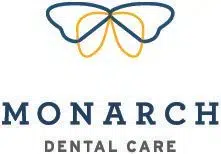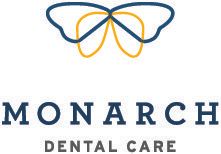
Protecting Your Smile: Early Intervention for Gum Disease
Gum disease, also known as periodontal disease, is a progressive condition that can lead to tooth loss and other serious health complications when left untreated. Gum disease develops in stages, starting with gingivitis and progressing to periodontitis.
Understanding the stages of periodontal disease and its symptoms is essential for early detection and effective treatment. To schedule an appointment, contact our dentist in Prairie Village today by calling (913) 362-4488.
Gum Disease Stages
Gingivitis
- Bleeding gums
- Swollen gums
- Tender or sensitive gums
- Bad breath
- Receding gums
- Gum sensitivity
- Changes in gum texture
Fortunately, gingivitis can often be reversed with proper oral hygiene practices such as brushing your teeth twice a day, flossing daily, and regular dental cleanings.
If you have noticed signs of gingivitis, schedule an appointment with our dentist as soon as possible. With early intervention, gingivitis can be easily treated before it progresses to more severe stages of gum disease.
Early Periodontitis
If left untreated, gingivitis can progress to early periodontitis, which is characterized by a more significant infection that begins to affect the bone supporting the teeth.
Symptoms of early periodontitis include:
- Persistent bad breath
- Bleeding gums
- Swollen or red gums
- Gum recession
- Tooth Sensitivity
- Loose teeth
- Formation of periodontal pockets
At this stage of gum disease, the bacteria have begun to penetrate the deeper layers of gum tissue and the surrounding bone itself, causing irreversible damage and bone loss.
To treat early periodontitis, dentists may recommend scaling and root planing, which involves removing plaque and tartar buildup from beneath the gum line and smoothing the tooth root surfaces.
Moderate Periodontitis
- Deep gum pockets
- Gum swelling and redness
- Tooth migration or shifting
- Gum abscesses
- Chronic bad breath
- Changes in the bite
- Pain or discomfort while chewing
Advanced Periodontitis
The final stage of gum disease is advanced periodontitis, which is characterized by severe bone loss and tooth mobility. At this severe stage, teeth may need to be extracted, and patients may require extensive reconstructive procedures to restore their oral health.
Symptoms of advanced periodontitis include:
- Severe pain
- Tooth loss
- Gum inflammation
- Severe gum recession
- Pus discharge and painful abscesses
- Swollen or bleeding gums
Frequently Asked Questions
Are You at Risk for Gum Disease? Schedule a Consultation!
If you’re experiencing symptoms of gum disease or want to learn more about how to prevent it, schedule an appointment with our Prairie Village dentist today. Don’t let gum disease go untreated and risk the potential for serious health complications.
Contact us at (913) 362-4488 to schedule your appointment and take the first step toward achieving optimal oral health.

